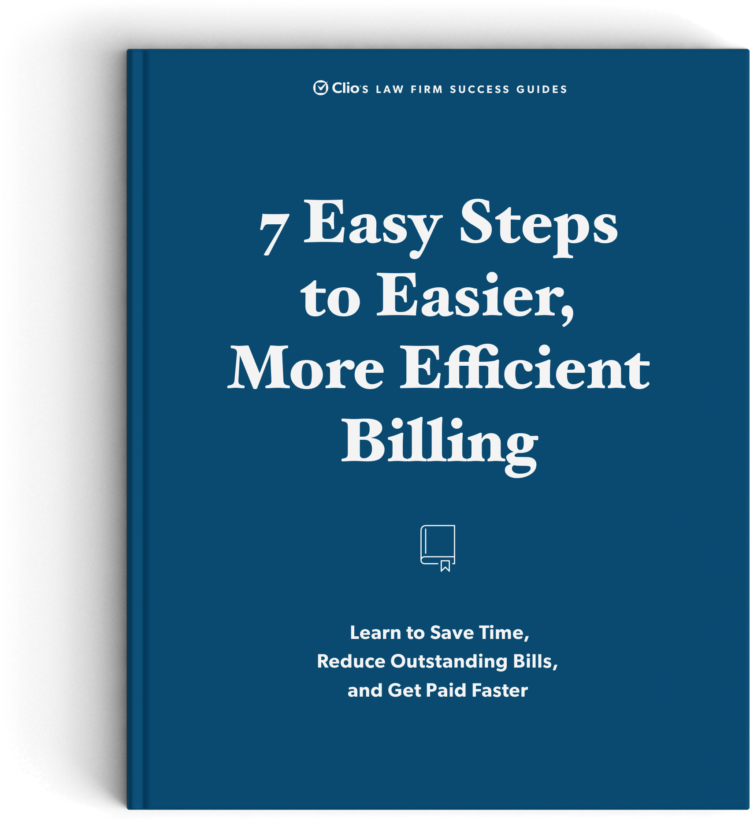Frequently Asked Questions
How are contingent liabilities handled in law firm accounting?
In law firm accounting, contingent liabilities are potential obligations that may arise based on the outcome of a future event, such as ongoing litigation or disputes. These are not recorded as actual liabilities but are disclosed in the financial statements' notes if the likelihood of occurrence is possible but not certain. If the liability becomes probable and the amount can be reasonably estimated, it should be recognized in the financial statements.
What are some examples of contingent liabilities for a law firm?
Examples of contingent liabilities for a law firm include potential settlement amounts in ongoing litigation, pending lawsuits where the firm might have to pay damages, or guarantees made by the firm on behalf of clients. These liabilities are uncertain and depend on future events or court rulings.

7 Steps to Easier, More Efficient Law Firm Billing
Read this guide to implement smarter billing workflows that help you get paid faster with less effort.





